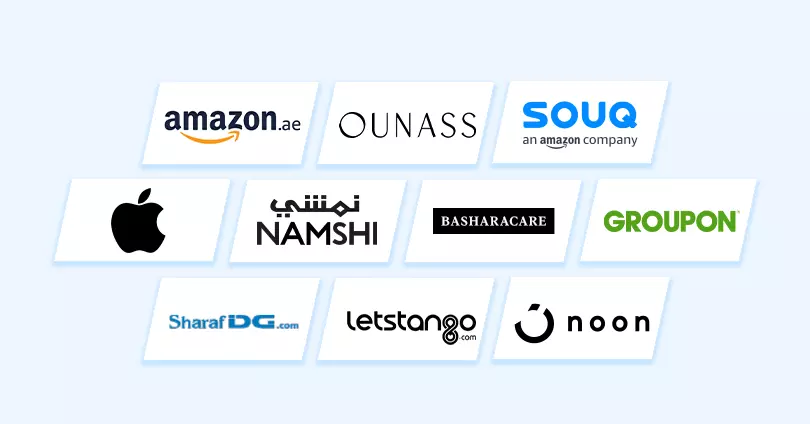The United Arab Emirates (UAE) is rapidly emerging as a global hub for technology and innovation, with tech startups playing a pivotal role in building the nation’s digital economy. As part of its ambitious UAE Digital Economy Strategy, the government is actively fostering an ecosystem that nurtures entrepreneurship, innovation, and digital transformation across various industries. From fintech and e-commerce to healthtech and AI, tech startups are driving economic diversification and contributing to the UAE’s vision of becoming a leader in the global digital economy.
This article explores how UAE-based tech startups are shaping the country’s digital future, the key initiatives supporting them, and the challenges they face as they scale their businesses.
1. The UAE’s Commitment to a Digital Economy
The UAE government has placed digital transformation at the center of its economic diversification efforts, aiming to increase the digital economy’s contribution to GDP from 9.7% to 20% by 2031. Initiatives such as the UAE Digital Economy Strategy, Dubai Future Accelerators, and Abu Dhabi’s Hub71 provide startups with the resources, funding, and mentorship needed to thrive.
Key Pillars of the Digital Economy Strategy:
- Entrepreneurial Support: Encouraging innovation through incubators, accelerators, and funding programs.
- Digital Infrastructure: Investing in 5G networks, cloud computing, and AI technologies to create a robust foundation for digital growth.
- Talent Development: Establishing partnerships with global tech giants and academic institutions to cultivate local and international talent.
2. Key Sectors Driving the Digital Economy
Tech startups in the UAE are revolutionizing industries by introducing innovative solutions that leverage advanced technologies such as AI, blockchain, and IoT. The following sectors are at the forefront of this transformation:
a) Fintech
Fintech startups are disrupting traditional financial services with solutions that simplify payments, lending, and investment management. Platforms like Tabby, a buy-now-pay-later solution, and YAP, a digital banking app, are transforming how consumers and businesses manage finances. The Central Bank of the UAE’s Fintech Strategy has also facilitated the growth of the sector by creating regulatory sandboxes and open banking frameworks.
b) E-commerce
The UAE’s e-commerce sector has experienced exponential growth, fueled by the shift to online shopping during the pandemic. Startups like Namshi and Noon have established themselves as leading platforms, offering a wide range of products and seamless user experiences. The Dubai CommerCity, a free zone dedicated to e-commerce, further supports this sector by providing logistics and business setup assistance.
c) Healthtech
The healthtech sector is booming, with startups such as Okadoc, a telemedicine platform, and Sehteq, an online health insurance provider, addressing critical healthcare challenges. The government’s focus on digital healthcare solutions, particularly during COVID-19, has accelerated the adoption of telemedicine, AI diagnostics, and wearable health devices.
d) Artificial Intelligence and IoT
AI and IoT startups are driving innovation across industries, from smart cities to logistics. Companies like SmartCrowd, a real estate investment platform, and Derq, an AI-powered road safety platform, showcase how startups are solving real-world problems using cutting-edge technologies. The UAE’s National Artificial Intelligence Strategy 2031 is providing additional momentum to this sector.

3. Government Support for Tech Startups
The UAE’s startup ecosystem is thriving due to the government’s proactive approach to supporting entrepreneurs. Several key programs and initiatives have been instrumental in fostering startup growth:
a) Hub71 (Abu Dhabi)
Hub71, based in Abu Dhabi, is a global tech ecosystem that offers grants, mentorship, and workspace to startups. It has attracted over 200 startups since its launch, with a focus on fintech, healthcare, and AI.
b) Dubai Future Accelerators
The Dubai Future Accelerators program connects startups with government entities to solve real-world challenges. Participants gain access to resources and pilot opportunities with partners like Dubai Health Authority and Dubai Police.
c) DIFC FinTech Hive
The FinTech Hive at Dubai International Financial Centre (DIFC) supports fintech startups with access to regulatory sandboxes, venture capital, and a collaborative workspace. It has been a launchpad for several successful startups in the region.
d) Free Zones and Regulatory Frameworks
Free zones like Dubai Internet City, Sharjah Research Technology and Innovation Park, and Masdar City offer tax incentives, 100% foreign ownership, and streamlined business setup processes. The UAE also provides regulatory sandboxes to help startups test their products in a controlled environment.
4. Challenges Facing UAE Tech Startups
While the UAE offers a supportive ecosystem for startups, there are challenges that entrepreneurs must navigate:
a) Funding Access
Although the UAE has a growing venture capital ecosystem, early-stage startups often struggle to secure funding. Angel investors and seed-stage funds are still limited compared to more mature markets.
b) Talent Shortages
The rapid growth of the tech sector has created high demand for skilled professionals in AI, data science, and software development. Attracting and retaining talent remains a challenge for startups competing with multinational companies.
c) Competition
The influx of startups into the UAE market has intensified competition, making it crucial for new entrants to differentiate themselves through innovation and unique value propositions.
d) Scalability
Startups must navigate complex regulations and cross-border challenges as they expand beyond the UAE. Building scalable business models that can operate in diverse markets is a significant hurdle.

5. Success Stories: UAE Tech Startups Leading the Way
The UAE’s startup ecosystem has produced several success stories, showcasing the potential for growth and innovation:
- Careem: Founded in 2012, Careem revolutionized ride-hailing in the Middle East before being acquired by Uber for $3.1 billion in 2020. The company’s journey highlights the region’s capacity to produce unicorns.
- Anghami: As the leading music streaming platform in the Arab world, Anghami became the first MENA-based tech company to list on NASDAQ, cementing its position as a regional success story.
- Bayzat: A fintech and HR tech platform that simplifies employee benefits and payroll, Bayzat has become a key player in the UAE’s growing startup ecosystem.
6. The Future of the UAE’s Digital Economy
With continued government support, growing investment, and an influx of global talent, the UAE is well-positioned to become a global leader in the digital economy. Emerging technologies such as blockchain, quantum computing, and metaverse applications are likely to shape the next wave of innovation, creating new opportunities for startups.
Predicted Trends:
- Expansion of AI and machine learning applications in industries like healthcare, retail, and logistics.
- Growth of sustainable tech startups aligned with the UAE’s Green Agenda 2030.
- Increased focus on cybersecurity startups, driven by the region’s digital transformation.
Image Courtesy Notice
At The Storiez, we value the efforts of photographers, artists, and content creators. The images featured in our articles are sourced from various news portals and online websites. We strive to ensure proper credit is given wherever possible. If you are the rightful owner of any image used here and would like to request its removal or correct attribution, please feel free to contact us. We respect intellectual property rights and aim to address concerns promptly.

